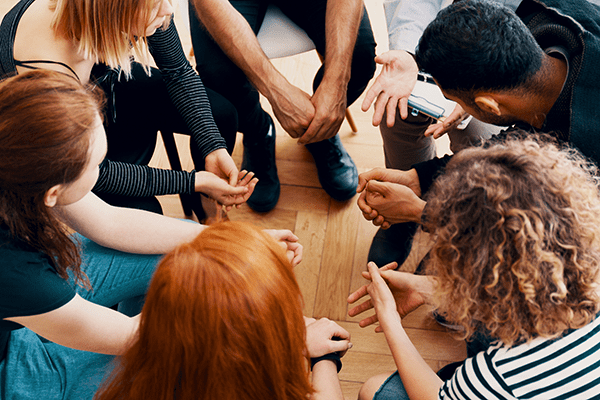
Substance Use Disorder During the Holiday Season
The holiday season is typically a time of joy, shared moments and togetherness for many people. It can also be a tough time for people facing substance use disorder (SUD). The added stress that often comes with this season can include family conflicts, money problems and feeling alone, making things even harder for those dealing with SUD.
Helpful Tips
In addition to recognizing the signs of substance use disorder (SUD), it’s crucial to understand how to minimize triggers that can lead to substance use, especially during the holiday season.
Here are some strategies to help avoid triggers and support recovery:
Identifying triggers is the first step in managing substance use disorder (SUD). These triggers can be people, places, or emotions like stress, sadness, or boredom. Once you recognize these triggers, it becomes easier to develop strategies to avoid or deal with them effectively.
Dr. Kelly Dunn, executive director of clinical treatment at the National Center for Wellness and Recovery, said to remember that most family members will need help knowing how to support someone in recovery.
“If you teach your loved ones how to support you and define what this looks like practically, this empowers them to be on your team, lowers anxiety and improves the connection you feel when you’re together,” she said. “Take the mystery out.”
Planning ahead is crucial, especially when attending gatherings or events during the holiday season. Ensuring a safe and supportive environment is essential. Opt for events with people who understand and support your journey to recovery.
Don’t hesitate to lean on your support system. Reach out to friends, family, or support groups that can offer encouragement and a safe space to share your feelings and concerns. They can be a valuable source of strength during challenging times.
Avoiding high-risk situations is a practical approach. If you’re aware that a specific place or situation can trigger your substance use, it’s best to steer clear of it whenever possible. Prioritize your well-being and choose environments that promote your recovery.
Developing coping strategies is key. Learn healthy ways to deal with stress, anxiety, or difficult emotions. Techniques like deep breathing exercises, mindfulness, or engaging in hobbies you enjoy can serve as effective alternatives to substance use.
Having an exit plan is essential in case you find yourself in a triggering situation. Knowing how to remove yourself from a challenging environment can prevent relapse and ensure your safety.
Celebrate the wins
Finally, don’t forget to celebrate your milestones. Acknowledge and commemorate your progress and achievements in recovery. Recognizing your resilience and hard work in maintaining sobriety is a powerful motivator for continued success.
“The holidays can bring up old traditions that do not support your recovery,” said Dunn. “Taking time to intentionally create new traditions that are positive and support your health is worthwhile.”
Remember professional help is a valuable step in managing triggers and preventing relapse. Health care professionals or therapists can provide guidance and personalized strategies tailored to your unique circumstances. There is no shame in seeking help.
Contact the NCWR Addiction and Recovery Clinic at OSU at 918-561-1890 to schedule an appointment. In case of a medical emergency, please dial 911. For immediate and confidential emotional support, please call 988 to reach the National Suicide and Crisis Lifeline.
Additional Information & Resources
OSU NCWR Addiction Recovery Clinic